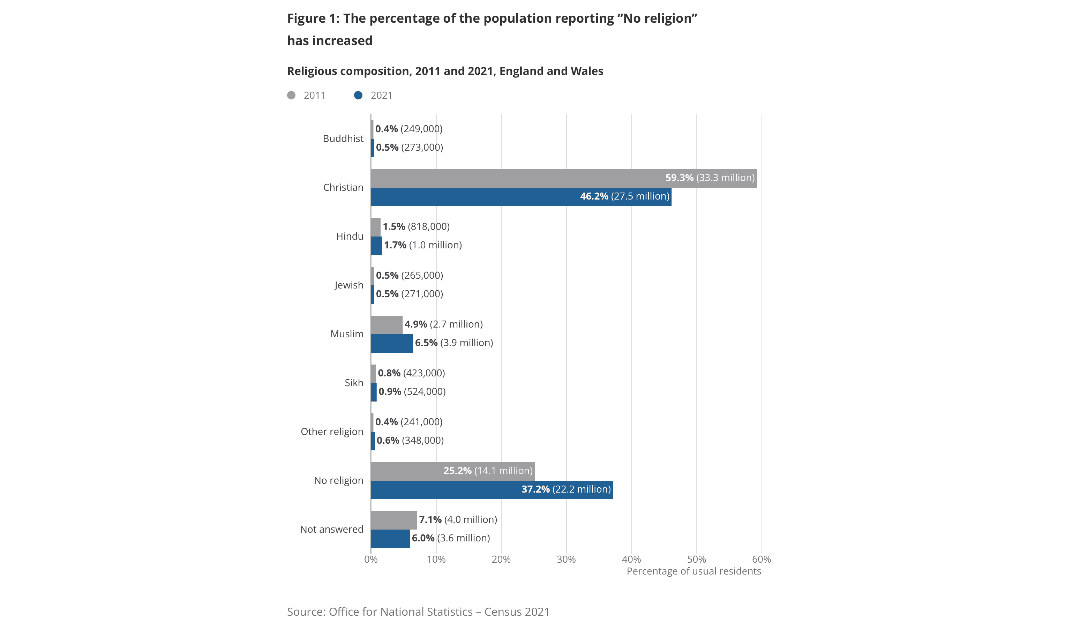Colin Bloom led a review into government’s relationship with religious faiths. The government recently published his report Does government ‘do God?’ Bloom divides the population into true believers, non-believers, and make-believers. The clarity of the first two throws the emphasis cleverly upon the third. I’ll quote his definition: “Make-believers are often motivated by ego, money, prestige or power and abuse their position to promote themselves or their causes, clothing them with religion to give them divine legitimacy. Make-believers are a problem, both for government and for the communities they claim to represent.”
Bloom cites some interesting statistics from the 2021 census of England and Wales. The ones that stand out for me are that 42.6% described themselves as Christian, down from 59.3% in 2011. No religion was the second most common response at 37.2%, up from 25.2% in 2011. Muslim and Hindu religions have both grown. Muslim grew from 4.9% to 6.5%, and Hindu grew from 1.5% to 1.7%. The other interesting statistic is that 68% of prisoners in England and Wales claim to have a faith. I thought of several possible explanations:
- People of faith are more likely to commit crimes.
- People of faith are more likely to be caught and convicted of crimes.
- Convicts seek redemption through faith
- Convicts receive better treatment if they have a faith
I discussed this with my wife Claire, a retired barrister. She said that criminals find God in prison so as to persuade the parole board that they’re reformed people and deserve early parole. My cousin Bill, a retired police officer from Canada, is over in the UK with his wife Sue visiting relatives and sightseeing. I put the question to him yesterday, and he came to Claire’s conclusion straightaway. Ironically we were in Bath Abbey at the time. Bill is an excellent artist with a love of historic and quirky buildings. I think our tours of Bath and Oxford will have given him some inspiration. Check out his website.
Amongst the make-believer issues are faith based extremism and arranged marriages. Arranged marriage struck a chord with me because I’m researching my fifth book of the Sir Anthony Standen Adventures, and reading a biography of Marie de Medici.
Of the children of Marie de Medici, Louis married Anne of Austria when he was 14 and she was 13. Elizabeth married Philip IV of Spain when she was 13. Christine married the Duke of Savoy when she was 13. Henrietta married the future Charles I of England when she was about 16.
I suppose that’s the great power of the Cinderella story. It’s a rags to riches tale for her, but also a battle for the prince to marry the girl he loves, rather than the one arranged for him.

